Best Friends Forever: An interview with OITNB’s Danielle Brooks and Samira Wiley

In June, the cast of Orange is the New Black assembled in Manhattan for a day of press interviews. Metro Weekly was invited to participate with journalists from other print and online publications. The questions are denoted as Press, as they were posed by multiple sources.
We continue with the pairing of Danielle Brooks, who plays who plays Tasha “Taystee” Jefferson and Samira Wiley, who plays her fellow inmate and best friend, Poussey Washington. The actresses both met while studying theater at Julliard. Wiley has ties to the D. C. area, as her parents, Dennis and Christine Wiley, are co-pastors of Anacostia’s Covenant Baptist United Church of Christ, where they have long been outspoken advocates for gay rights and same-sex marriage, not a typical stance in the religious community. When the topic of her parents comes up during the lively conversation, Wiley grows visibly humbled. And she’s more than happy to point out that her parents both watch and enjoy the popular Netflix series, even if their daughter is “serving time behind bars. “
PRESS: Jenji Kohan took quite a gripping path with you two this year. It explored not only the boundaries of friendship, especially in a prison, but how also how friendships can be torn apart and sometimes repaired. We also saw your stories and found out who you your characters were. And then there’s that unrequited love thing going on that happens a lot of times between straight people and gay people. How did it feel for you to play out all of this stuff?
DANIELLE BROOKS: It was exciting. We’re both classically trained actors, so to get to put what we know to work was a lot of fun for us. Last season, both of us were kind of the comedic release of prison sidekicks. But when Taystee sees Vee (Lorraine Toussaint), she can no longer hide with the joking and the laughter, and is forced to deal with her issues. Which turns her against her closest of friends.
SAMIRA WILEY: I just wanted to work with meaty, challenging material, something that resonates with our audiences. And I want people talking about it and to deal with issues like homophobia. I feel so honored to be the one that’s putting it out there, through the words of the writers, for people to start to have discussions about. I just feel lucky to be able to do that.
PRESS: Danielle, in your flashback scenes, we get to see how race really plays into adoption stories in the United States. Could talk about that?
BROOKS: Yeah, it’s very interesting. I come from a household with two parents, so I don’t have that experience and I’m not at all trying to speak for people that have been adopted. But it is very interesting because with Taystee, she’s very savvy. She’s very smart and you see that at the adoption agency. And she knows why she’s not getting picked up. She understands that because she’s a bigger girl and because of her skin tone that people aren’t most likely wanting her. I can relate to that, as an actor feeling like because of who I am, I’m not enough. So I can relate to Taystee in that way.
PRESS: Samira, your character does not take the easy route. She could have easily just gone with Vee’s crew and been part of that, but she defies Vee to the point of endangering herself.
WILEY: Yeah, because then there’s no conflict and that’s not TV. [Laughs. ]
PRESS: Did that feel natural to you that she would be so stridently against Vee?
WILEY: It did feel natural, to be honest. Even when we get to see Poussey’s backstory and we get to see where she comes from — a military family — and her father, who is unashamedly accepting of her, you see where that strength and sense of self comes from. It made a lot of sense to me that Poussey made the choices that she did.
PRESS: Let’s talk about the cuddle scene, where it looks like you two are taking a step toward –
BROOKS: That cuddle scene. [Laughs. ]
PRESS: – a certain route. Reading that scene and acting it out for the first time, was there a fear for either one of you that the relationship would become sexual and how that would affect the bond that your characters share as friends?
WILEY: I mean, I’m pretty trusting in the writers and I’m pretty game for what they want to throw at us. I’m just trying to bring truth to whatever they write. But selfishly, I like them better as friends. [Laughs. ]
BROOKS: Yeah, at first it was like, this is a little awkward. I was like, “I don’t know where they’re going with this,” but like she said, I trust their vision because they know way further down the line where they want these characters to go. And I think it brings up a lot of issues about friendship and not too often do you get to see a friendship in this way on television, so I like where they took it and I feel like, I don’t know if I want them to be safe.
PRESS: I was ready for it.
BROOKS: A lot of people were.
WILEY: I would have been ready for anything, really.
BROOKS: I would have been ready but I feel like I do like their friendship. You know, once things get complicated, you can’t turn back once you’re in that deep. You can’t kind of go back to just being friends and now, even though they’ve had their issues, it’s fixable. That’s not the exact word I’m looking for. I feel like when you bring sex into it, it’ll definitely dampen [the friendship]. I don’t think it would have been the same. But who knows?
WILEY: I mean if they would have been like happy and lovers the whole time then it would have been great, you know?
PRESS: Samira, your parents are well-known in Washington, D. C. for their unapologetic, unyielding support of the gay and lesbian community. Extraordinary support, actually.
WILEY: Yes. Since before I was even thought of. [Laughs. ]
PRESS: How does that make you feel?I mean, when you know that your parents are that important in a sense of the movement. I mean, they’re legends.
WILEY: I’m going to get all inarticulate thinking about my parents. I mean, I love them so much. I’m such a fan of theirs and I’m such a fan of their work and I admire them. Even being here right now and you asking me about them and having my work be relevant to the things that they do is just beyond amazing to me. In no way do I think my name should be mentioned even in the same sentence as theirs, except to say that they made me. But I’m just so honored to be able to say that I even know them.

PRESS: How do they like the show?
WILEY: They love the show. I was just talking to them this morning, actually, and they were talking about how the show is fun and entertaining, but it’s having people really think and talk about difficult issues that maybe they wouldn’t otherwise. They’re proud of me.
PRESS: One of the critiques has been that characters of color were playing too many stereotypical roles. Do you guys respond to any of those critiques?Did you internalize them in any way?
WILEY: Not for me, really, at all. To be honest, I think sometimes people can be a little hypersensitive when it comes to stereotypes. I just run with stereotypes most of the time — they do stem from truth and I think that nothing changed in the way that I’m portraying the character. I think that a lot of times people’s own stuff can get in the way of how they view things.
BROOKS: I’ve thought about it. From the minute I got the script and I knew I was going to be playing an inmate, that made me nervous. But my choices when I auditioned were to go in and play the opposite. I didn’t want to play her stereotypical and hoped that got me the job. When I went in and auditioned, [they] said to me that she’s lighthearted and not malicious, that made me say, “Yes, that’s exactly the route I was going to take, and not play the angry black women. ”So I was onboard from that moment. And especially when you find out more about Taystee and how smart and intelligent she is and how much she reads — way more than I do. [Laughs. ] I mean, it really breaks that. But again, like Samira said, there’s truth in stereotypes and there are black women that have come from broken homes that are adopted and we get to play them as honestly as we know how.
PRESS: You two have so many fun moments together. Are there any moments where you just like couldn’t stop laughing on set?
WILEY: Oh, that scene when we’re all in the bathroom like looking at the vajayjays.
BROOKS: Talking about what the vajayjays look like. I was just like, “Yoooooo! What is going on?
PRESS: How is it working with Laverne Cox?
WILEY: She’s great.
BROOKS: Oh, great. Yeah, she’s great. She brings a lot of energy to set and…
WILEY: She’s fun.
BROOKS: She’s always positive.
PRESS: She’s iconic now.
BROOKS: So iconic.
WILEY: I have to say, she’s been inspiring to my life, just being so bold in who she is and not being ashamed of that. I can’t explain to you how grateful I am to have met her and to see where she’s going with being the face of transgender women in such a beautiful way.
BROOKS: Just a beautiful lady.
WILEY: Yeah, I have a lot of respect for her and I thank her a lot for just being who she is.
Orange is the New Black, Season 2, is streaming exclusively on Netflix. Season 1 is available on Netflix and on Blu-Ray and DVD at Amazon. com.
More interviews from “Orange Is the New Black” by Metro Weekly:
- Danielle Brooks and Samira Wiley (“Tasha ‘Taystee’ Jefferson” & “Poussey Washington”)
- Kate Mulgrew and Lorraine Toussant (“Galina ‘Red’ Reznikov” & “Yvonne ‘Vee’ Parker”)
- Laura Prepon & Jason Biggs (“Alex Vause” & “Larry Bloom”)
- Laverne Cox (“Sophia Burset”)
- Selenis Leyva (“Gloria Mendoza”)
- Yael Stone & Natasha Lyonne (“Lorna Morello” & “Nicky Nichols”)
- Piper Kerman (author of the original book)
Support Metro Weekly’s Journalism
These are challenging times for news organizations. And yet it’s crucial we stay active and provide vital resources and information to both our local readers and the world. So won’t you please take a moment and consider supporting Metro Weekly with a membership? For as little as $5 a month, you can help ensure Metro Weekly magazine and MetroWeekly.com remain free, viable resources as we provide the best, most diverse, culturally-resonant LGBTQ coverage in both the D.C. region and around the world. Memberships come with exclusive perks and discounts, your own personal digital delivery of each week’s magazine (and an archive), access to our Member's Lounge when it launches this fall, and exclusive members-only items like Metro Weekly Membership Mugs and Tote Bags! Check out all our membership levels here and please join us today!







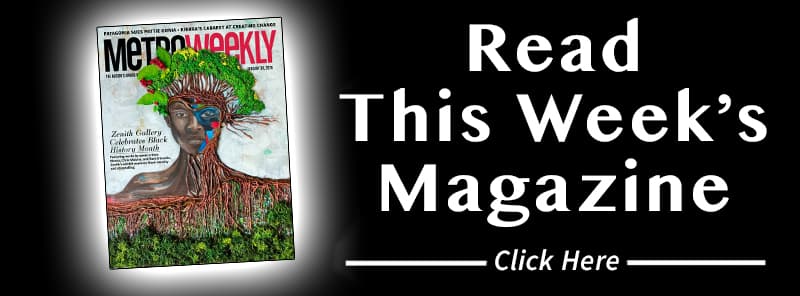

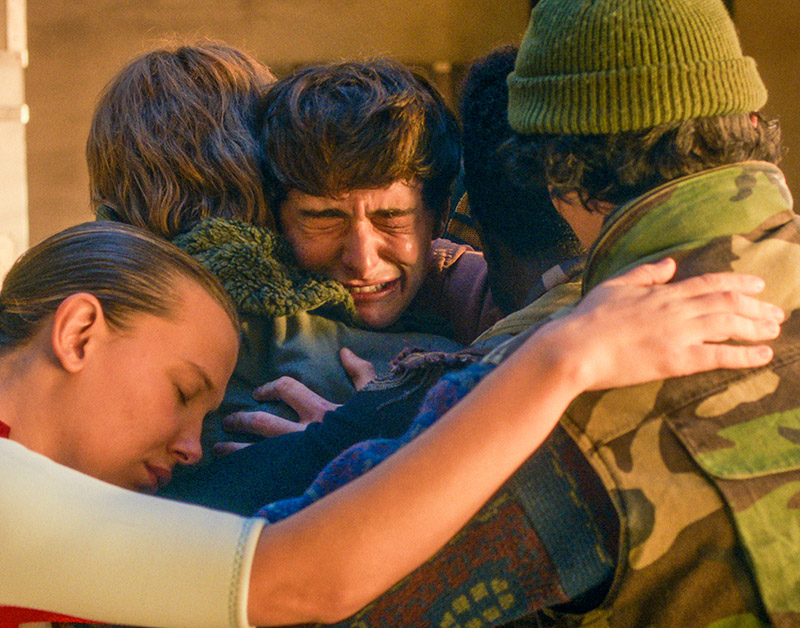













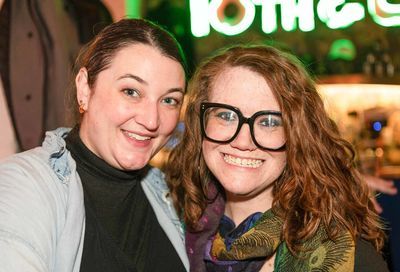
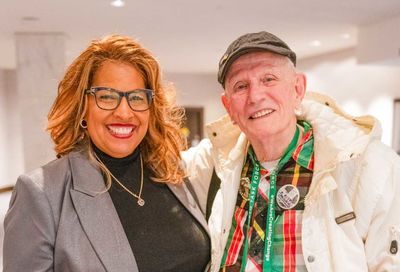
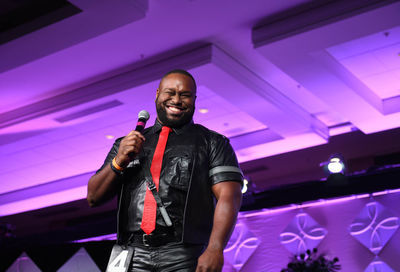
You must be logged in to post a comment.